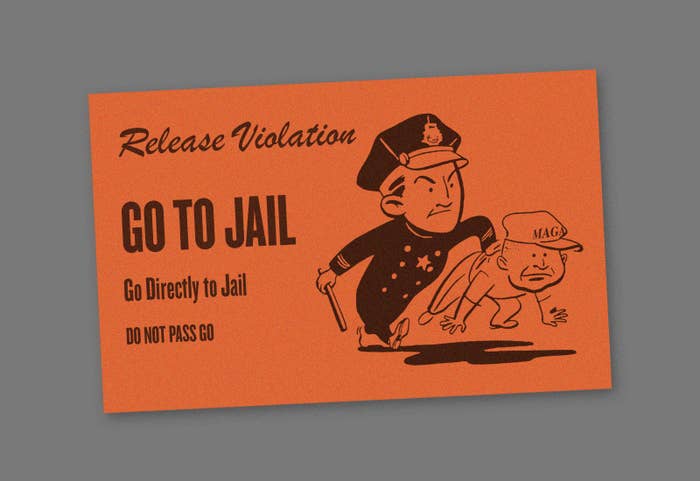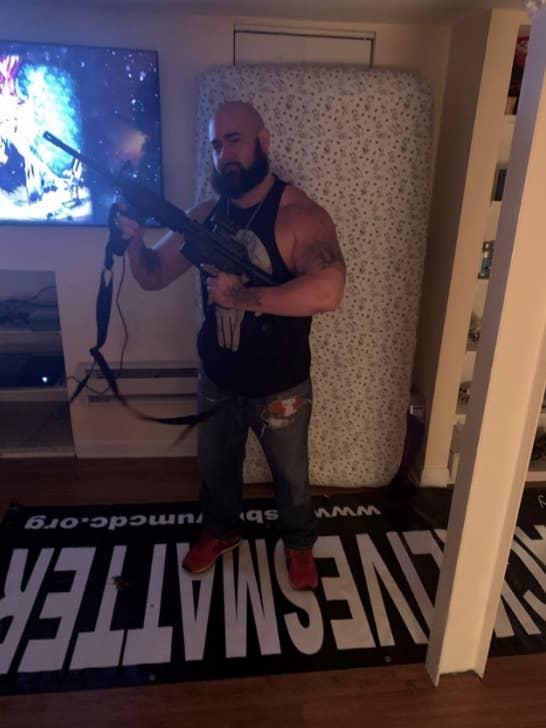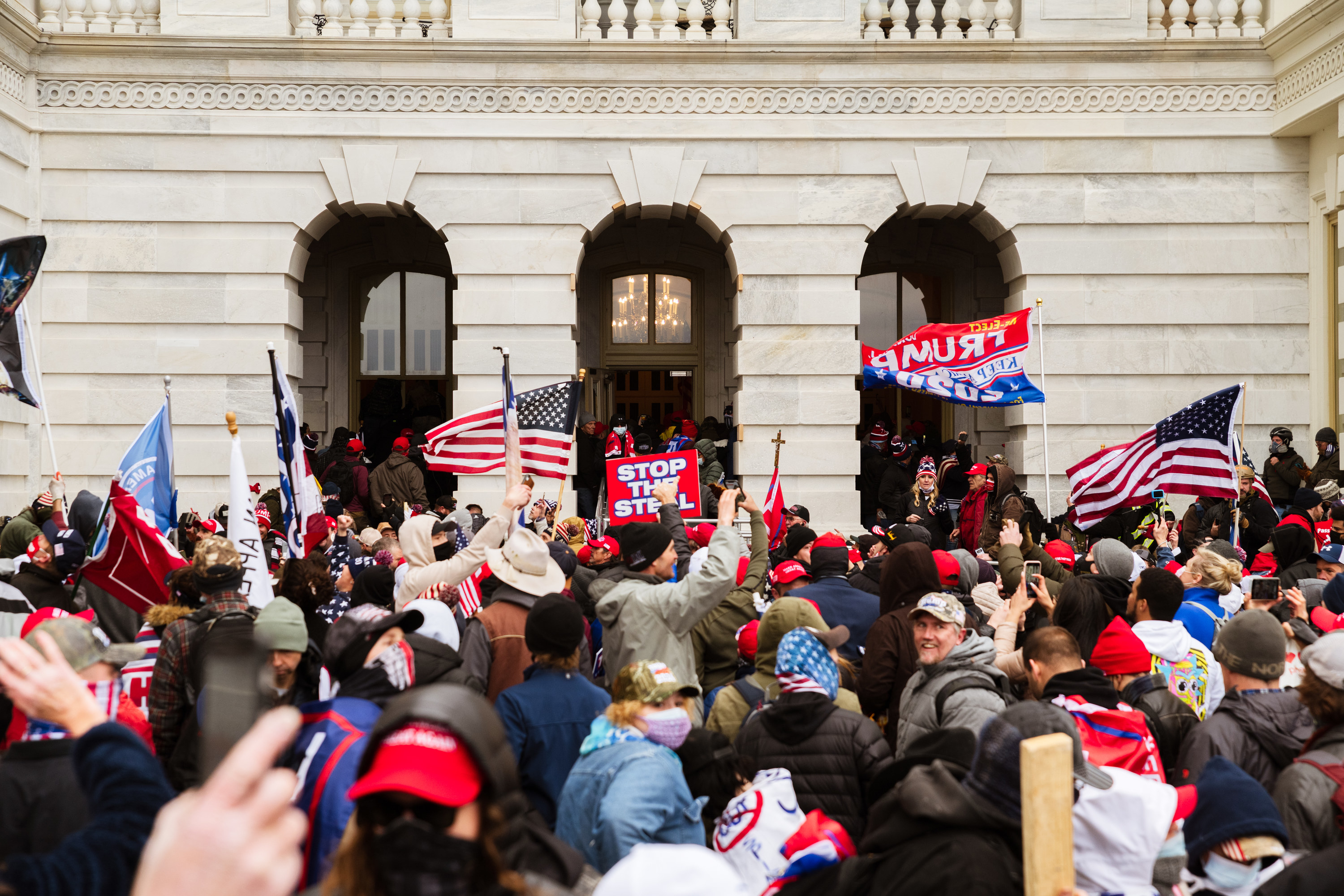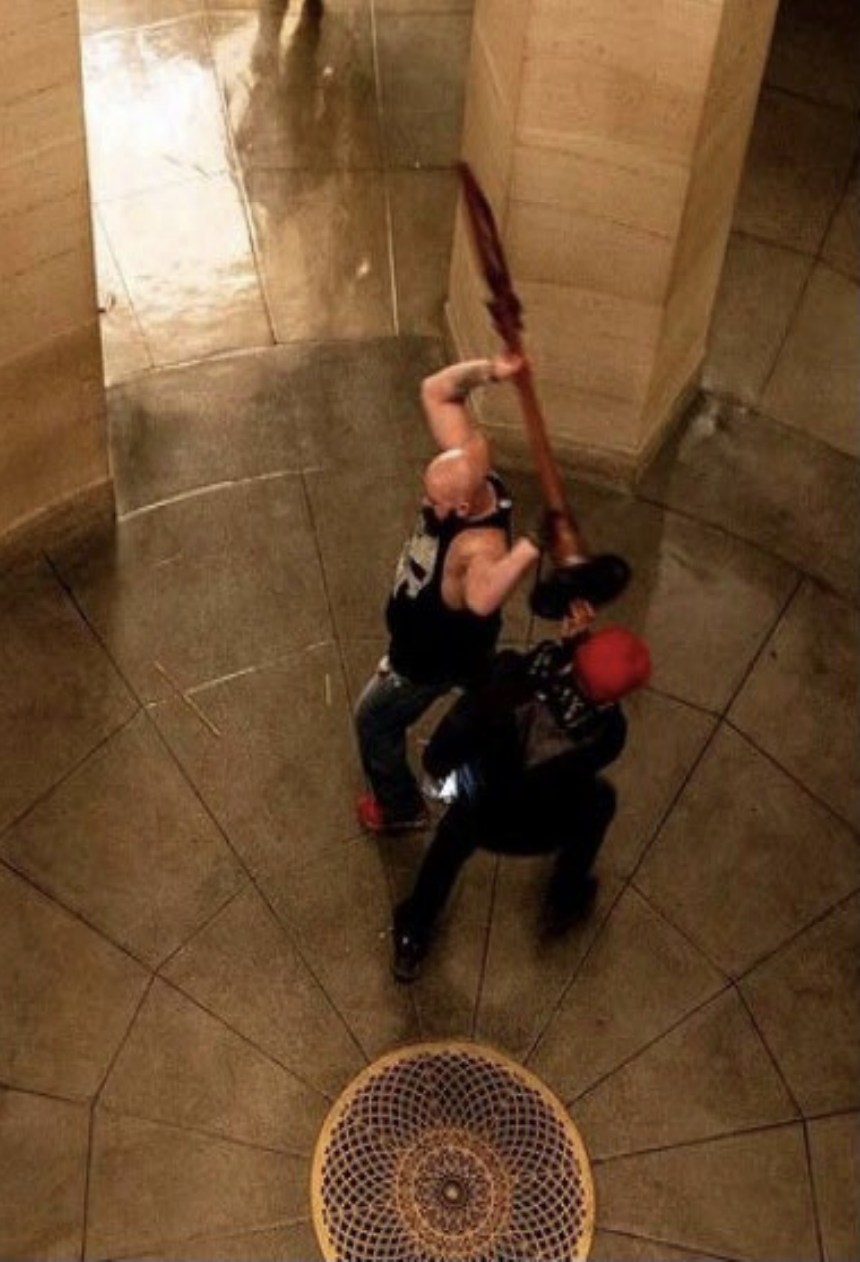
WASHINGTON — Joshua Pruitt’s curfew violations had stacked up in the year after he was charged with participating in the Jan. 6 insurrection and allowed to go home on strict conditions. The final straw for the judge was a string of seven violations around the holidays, with Pruitt’s GPS monitor repeatedly showing that he was not where he was supposed to be, sometimes for hours overnight.
US District Judge Timothy Kelly last week granted the prosecutor’s request to place Pruitt in jail as his case went forward, concluding the Tennessee man had “abused” the numerous opportunities he’d been given to come into compliance. During the hearing, Pruitt’s tearful pleas for another chance morphed into angry objections and interruptions over the judge’s repeated warnings to be quiet, and threats to complain about the judge to the press.

Pruitt is one of 11 people charged in connection with the attack on the US Capitol who were ordered into custody after initially being released; eight of those cases involved defendants who violated conditions of their pretrial release. Prosecutors have a pending request to put another defendant behind bars, and BuzzFeed News identified at least 16 cases where judges tightened restrictions or issued warnings after finding defendants failed to be in full compliance with the letter, or spirit, of their release conditions.
The vast majority of people charged in the Jan. 6 investigation have been allowed to go home while their cases are pending; there are more than 550 defendants with active cases on pretrial release. Most have stayed out of trouble. The small but steady trickle of problems that have cropped up speak to some of the broader challenges judges have faced in deciding when it’s appropriate to send someone back into the community who is accused of being part of the insurrection but isn’t charged with a specific act of violence or a more serious crime.
Some judges have expressed concern that evidence of a person’s enthusiastic participation in the insurrection showed, in one judge’s words, “a total disregard for the law and for officials' directives,” even if they weren’t charged with violence. Some judges have been worried about the sway that former president Donald Trump continues to have over his supporters, given his ongoing efforts to promote the lie that the election was stolen. Douglas Jensen of Iowa was returned to jail in the fall for violating a prohibition on internet access after he was caught streaming election fraud conspiracy theory content.
A common theme of pretrial release violations in the Jan. 6 cases has been defendants reluctant to give up their access to firearms. At least two people have been accused of trying to interfere with potential witnesses. In the latest case where the government wants a defendant placed in custody, prosecutors claimed that William Norwood III of South Carolina tried to pressure his estranged wife to lie.
“I will tell the whole truth,” Norwood’s wife had messaged him, according to the government. “No you won’t,” he allegedly replied. “Do not throw me under the bus … What part of spousal privilege don’t you get???” Norwood has until Feb. 2 to respond; a judge scheduled a hearing for Feb. 23, and he’ll be allowed to remain at home in the meantime. Norwood’s lawyer Peter Cooper declined to comment.
Incarcerating a person who hasn’t been convicted of a crime is supposed to be a last resort. It’s common for people charged with misdemeanor offenses or nonviolent crimes to be allowed to live at home while their cases are pending, especially if they have little to no previous criminal record. Last March, a federal appeals court made clear that the bar would be high for the government to win detention for alleged Capitol rioters who weren’t charged with more serious crimes. Prosecutors in the Jan. 6 cases have mostly narrowed pretrial detention requests to people charged with violence and conspiracy; even then, they haven’t always pushed for jail.
But violating a judge’s orders, regardless of the underlying charges, opens up new avenues for consequences.

Many Capitol riot defendants have temporarily given up their right to own or possess firearms as part of their release conditions. There are at least seven cases where the government identified a gun-related violation. Earlier this week, a judge granted the government’s request to put James Grant of North Carolina in jail. Grant is charged with joining other rioters in using metal barricades to assault police officers at the Capitol. The government didn’t seek detention when he was arrested in October. But a prosecutor returned to court a few months later to ask the judge to revoke Grant’s release, citing multiple violations.
In early December, police officers responding to a call of a suicide threat encountered Grant intoxicated in a car, according to the government; they found an assault rifle and 60 rounds of ammunition in the vehicle. The pretrial supervision office had previously alerted the court that Grant tested positive twice for amphetamines after being allowed to go home. The prosecutor also noted that before Grant’s arrest in the Jan. 6 case, he’d been charged in September with driving under the influence and carrying a concealed firearm; that case is pending.
Kelly said that Grant’s actions showed he was unwilling or unable to comply with his release conditions, and that he posed a danger to the community. The judge described substance abuse, potential mental health issues, and firearms access as a “toxic combination.” Cooper, who also represents Grant, declined to comment.
A judge ordered Thomas Robertson, a former police officer from Virginia, to report to jail in July. The government successfully made the case for detention after discovering that Robertson had been ordering firearms online after being indicted for a felony in connection with the Capitol riot — a potentially chargeable crime on its own — and found a loaded assault rifle and ammunition during a search of his home. In October, Robertson’s lawyer asked the judge to consider releasing his client, writing that jail had taken a toll on his health and that after three months behind bars, the judge could “rest assured that Mr. Robertson completely understands his obligation to the Court now.”
US District Judge Christopher Cooper denied the request. He wrote that Robertson hadn’t presented specific information about any health problems and that the “mere passage of time” wasn’t enough.
Not everyone who got in trouble for gun-related violations was put in jail. Patrick Montgomery of Colorado was on the cusp of incarceration after the government reported he’d used a handgun to shoot and kill a mountain lion at a park in Denver. A judge ordered him jailed but then accepted an agreement that the government reached with Montgomery to instead place him on strict home incarceration. Matthew Loganbill, who owns a gun store in Missouri, was originally allowed to handle guns in limited circumstances associated with his business. A judge revoked that allowance after learning he’d entered a shooting contest, according to local media reports.
Prosecutors opposed Tyler Slaeker’s request to lift the condition barring him from possessing guns, quoting a pretrial supervision report that stated the Washington state man had “complained incessantly” and failed to show he was in compliance; the judge declared the issue moot once Slaeker provided the proof, and declined to change his conditions. A pretrial services officer reported Hunter Ehmke of California after he went to a gun range with a friend and shot at targets. His lawyer explained to the judge that Ehmke “did not understand that possession of a firearm encompasses more than just owning a firearm.” The prosecutor accepted the violation as unintentional, and he remained free.
Jensen of Iowa wasn’t the only Jan. 6 defendant whose online activities landed them back before a judge. Patrick Stedman, a New Jersey man who runs a relationship coaching business, received a warning not to contact anyone who might be a witness in his case after the government reported that he tweeted insults about another user that Stedman identified as “the guy who called the feds on me.”
Prosecutors raised a concern about a YouTube video that appeared to show far-right media personality Anthime Gionet having an encounter with law enforcement (Gionet is a former BuzzFeed employee). A pretrial services officer told the judge Gionet hadn’t technically violated any release conditions, but said he’d come close by appearing to purposefully agitate people and contact police to create entertainment content. The judge warned Gionet about putting himself in situations where he might actually cross the line. John Sullivan of Utah got a warning after a judge found he’d violated his conditions by buying a smartphone and promoting a group he’d founded during an appearance on the right-wing media platform Infowars.
Refusing to cooperate or having a combative relationship with the court officers who handle pretrial supervision landed Landon Copeland of Utah, Pauline Bauer of Pennsylvania, and Brandon Fellows of New York behind bars. Eric Clark of Kentucky was “sternly admonished” by a judge for not reporting to the pretrial services office when he was supposed to, and Jeremy Vorous of Pennsylvania was reprimanded for refusing to let a probation officer into his home.
A few Jan. 6 defendants have been charged with unrelated crimes while their DC cases are pending. Joshua Haynes of Virginia was arrested and charged with domestic violence offenses over the summer while he was on home incarceration in connection with his Jan. 6 case. He didn’t oppose having his release status revoked in DC, which meant he’d remain in custody even if he were released in the newer case.
Shortly before Emily Hernandez of Missouri was due to appear in court this month to enter a guilty plea, authorities reported that she’d crashed into another car while driving the wrong way on a highway. A woman who was in the other car died and a man was injured; it’s not clear yet what charges Hernandez will face, but she received a citation for driving while intoxicated, according to the St. Louis Post-Dispatch. Hernandez stayed on pretrial release after her plea hearing, but the judge in DC tightened her conditions. Slate recently noted that defendants Elias Costianes of Maryland and Kene Lazo of Virginia faced other charges while their Jan. 6 cases are pending, but their dockets didn’t show changes to their release status.
Joshua Pruitt’s case is among the oldest. He was arrested on Jan. 6, 2021, for violating a curfew order in Washington, DC, hours after the riot, and admitted to police that he’d gone into the Capitol, according to his charging papers. Prosecutors said he’d joined the Proud Boys in late 2020, and that while he later claimed it was a “drunk mistake,” he was seen in photos from Jan. 5 and Jan. 6 flashing the “OK” symbol often associated with the far-right group and standing with an assault-style rifle on a Black Lives Matter banner similar to the one that the group’s leader Henry “Enrique” Tarrio was convicted of taking from a local church and burning.
Pruitt was charged with a federal misdemeanor after his arrest. He was allowed to go home with conditions, including a curfew and a prohibition on having guns. A grand jury later returned an eight-count indictment that included two felony charges, for interfering with police during a civil disorder and obstructing an official proceeding. According to the government, while he was inside the Capitol, he’d thrown a sign that said “Quiet Please” and was part of a confrontation with US Capitol Police officers.

The Jan. 6 case wasn’t Pruitt’s first experience with court-ordered supervision. Shortly before the Capitol riot, he’d been arrested for violating civil protection orders in Washington, DC — he later pleaded guilty — and was released with GPS monitoring; he was also on probation from earlier cases in Maryland and Georgia. In arguing to revoke his release, prosecutors wrote that the fact that he allegedly stormed the Capitol while already on GPS monitoring “displayed a brazen disregard for the rule of law.”
The government disclosed in its court filing that Pruitt had previously violated his curfew in late January 2021 and in March; those violation notices were under seal on his public docket. In arguing for detention now, the government cited videos he’d posted online where he appeared to be threatening people; Pruitt’s lawyer Robert Jenkins said his client was trying to address threats he’d received. Prosecutors also highlighted an interview with CNN where Pruitt said he didn’t “feel like [he] did anything wrong,” but would hesitate to do it again because of the “consequences”; Jenkins said the CNN quotes were taken out of context, and Pruitt was referring generally to protesting at the Capitol.
Judge Timothy Kelly said the videos and CNN interview weighed against Pruitt, but weren’t what convinced him to put Pruitt in jail. He said he was “sympathetic” to defendants who wanted to keep working and had “bent over backwards” to accommodate Pruitt, but could no longer find his explanations for curfew violations credible.
“I just don’t believe that he repeatedly is out there in the middle of the night for reasons that are beyond his control,” the judge said.
Jenkins said in a phone interview on Wednesday that his client had complied with the judge’s order to self-surrender by Jan. 18 and was in custody. Jenkins said that they didn’t deny that Pruitt violated his curfew, but he maintained that those violations weren’t enough to put Pruitt in jail absent evidence that he’d violated the law or done something dangerous while he was out. ●
Correction: Eleven defendants have had their pretrial release revoked so far. This number was misstated in a previous version of this story.

